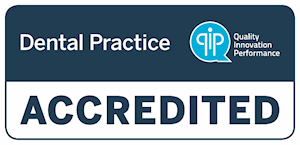Frequently Asked Questions
For your convenience, we have HICAPS – a simple and easy health claims and payments solution. To utilise our HICAPS system, please ensure you bring in your private health insurance member card to claim on the spot.
We require a full payment if your member card is not provided, however, health insurance can still be claimed at a later stage online, by phone or going into your nearest health insurance centre.
Yes. We offer treatments in both English and Japanese.
Please call our reception staff and ask for a Japanese speaker for any Japanese support.
当院では日本語と英語で治療を提供させて頂いております。
受付には日本人スタッフが常時おりますので、日本語でお気軽にお問合せ下さい。
※外人スタッフが電話対応をする場合もございます。その際には日本人スタッフをお呼び下さい。
Yes. With or without braces, mouthguards can easily be fabricated. To have a mouthguard made, it involves two relatively short appointments:
- Impressions and choosing the mouthguard colour of your choice from our selection
- Insert and check the fitting or pick up at reception
It is important to combine good oral hygiene, a healthy and balanced diet and regular dental visits.
If you have the following symptoms:
- tender, swollen or red gums
- bleeding gums when you brush or floss
- persistent bad breath or a bad taste in your mouth
Our oral health therapists will assess your periodontal (gum) condition and guide you towards an appropriate treatment plan.
There is onsite parking at the rear of our dental clinic on Orrong Crescent.
Tram: Number 75. Stop 48.
Train Stop: Hartwell or Willison
The novel coronavirus (COVID-19 or SARS-CoV-2) belongs to a family of RNA viruses known as Coronaviridae which includes Severe Acute Respiratory Syndrome Coronavirus (SARS-CoV) and Milddle-East Respiratory Syndrome Coronavirus (MERS-CoV). The coronavirus causes respiratory illness. Symptoms range from a mild cough to pneumonia. Some people recover easily, others may get very sick very quickly. There is evidence that it spreads from person to person. Good hygiene can prevent infection.
[1] Australian Government, Department of Health: https://www.health.gov.au/health-topics/novel-coronavirus-2019-ncov, accessed 5-83-20
Many people who contract COVID–19 will suffer only mild symptoms. However early indications are that the elderly and people with pre-existing medical conditions are more at risk of experiencing severe symptoms.
The most common symptoms reported include:
Fever
Breathing difficulties such as breathlessness
Cough
Sore throat
Fatigue or tiredness
Runny nose/Stuffy nose
Anosmia
Loss of smell/Loss of taste
Headache
Myalgia
Nausea
Vomiting
Diarrhoea
[2] Victorian Government, Department of Health and Human Services, available from https://www.dhhs.vic.gov.au/victorian-public-coronavirus-disease-covid-19, accessed 5-8-2







